Our Daily Bread - Spiritual Life BasicsSample

IV. Evangelistic Dialogue
After sharing the gospel with someone, you may find that he or she is not ready to make a commitment. That is why it is essential to keep the relationship going with occasional comments on spiritual truths.
Let’s look at a biblical example of personal sharing of the good news. As we study the account of Philip and the Ethiopian eunuch (Acts 8:26-39), watch for the ways in which Philip listened and cultivated spiritual interest.
Philip was enjoying a very successful ministry in Samaria, but an angel of the Lord pulled him off the job and sent him out to a desert road. There he saw a man sitting in a chariot and poring over a scroll as he traveled from Jerusalem to Ethiopia.
This man was a long way from home. He had come from Ethiopia apparently for the purpose of worshiping at the Jewish temple in Jerusalem. Perhaps he had purchased a copy of the Isaiah scroll at the temple. And now he was reading it as he traveled back home to the court of Queen Candace, where he served as treasurer.
Philip approached him and asked if he understood what he was reading. The eunuch knew he needed help understanding this God of the Jews, so he invited Philip to join him and explain the text of Isaiah 53:7-8, which he had been studying. From that prophetic passage, Philip was able to share with this man the story of Jesus and the significance of His life, death, and resurrection. The eunuch believed and was baptized.
What do we learn from this passage about sharing the good news?
- First, Philip was obedient to God’s direction in leaving Samaria, going to the desert, and talking with the Ethiopian. We too must be obedient to Jesus’ command to tell others about Him, which may include talking to a person the Holy Spirit has put on our hearts.
- Second, Philip met the man where he was. He didn’t walk up shouting, “Have I got good news for you!” No, he came close, asked a leading question, and waited for an invitation to go further in the conversation.
- Third, Philip sensed the eagerness of the eunuch to know more. He sat beside him, and, we can be pretty sure, looked him in the eye and saw the sincerity of his quest. When the Holy Spirit is working in a person’s heart, we will be aware of it and will be able to proceed with the entirety of the message of Jesus.
- Fourth, he pointed him to Scripture. The man was already reading from the scroll, so Philip had his text in front of him as he expounded on the passage and pointed to Jesus. We must do the same. The power is in the Word of God, not in our words.
- Fifth, he took him as far as he was willing to go. The Ethiopian gladly accepted the truth of the witness of Philip, and he not only became a believer but was baptized and filled with joy. Again, we have to go as far, and only as far, as the person we are talking to is ready to go.
The basic principle we learn from Philip and the Ethiopian eunuch is that sharing our faith should be relational and our role is to cultivate spiritual interest without being overbearing.
V. Waiting for the Harvest
In the book What’s Gone Wrong With the Harvest? James Engel and Wilbert Norton illustrate on a graph how people often go through a series of pre-conversion stages before stepping over the line of faith and receiving Jesus as their Savior.
When we hear individuals share their conversion experience, we may conclude that faith happened all at once. But their salvation frequently carries an extended back-story of spiritual pilgrimage before they made that decision. They needed time to reflect on the gospel. For them, coming to the Savior was a process.
This is similar to the process of farming. Months of waiting come to an end and workers stream into the fields to help with the harvest. One of our Lord’s parables illustrates how faith—like a crop—needs time to develop.
Responding to the gospel is like a seed that grows: “first the blade, then the head, after that the full grain,” until finally, “the harvest has come” (Mark 4:28-29 NKJV).
Because people may need time and multiple exposures to the gospel before they are ready to make a decision, we need to be sensitive to where they are in their faith-journey. In the meantime, we can cultivate spiritual interest, pray for them, and wait for the harvest!
VI. Where to Go From Here?
As the title of this devotional, Spiritual Life Basics, implies, these readings are designed to help you begin the process of growing in your spiritual life. Having completed its objectives you now have a foundational understanding of the Christian faith and are ready to move forward in your spiritual development. It is impossible to imagine growing in one’s spiritual life apart from the activities of Bible study, Prayer, Fellowship, and Evangelism. We encourage you to:
- Commit to a regular Bible reading schedule and prayer time. Explore other Our Daily Bread Devotionals on YouVersion, including Bible Basics. What gets scheduled gets done. And conversely what isn’t scheduled is easy to overlook! So even if it’s only a few minutes a day, it is essential to regularly pray, read, study, and meditate on God’s Word.
- Balance your reading for coverage and for impact. It’s important to read whole books of the Bible for greater knowledge. And it’s important to study shorter passages – a psalm or proverb or a paragraph and meditate on it.
- Find a church and get connected with other believers. Becoming involved with some type of ministry is vital for developing and maintaining a healthy spiritual life.
For video and additional resources see the following website: https://christianuniversity.org/courses/spiritual-life-basics/
Scripture
About this Plan

The New Testament challenges each of us to “grow in the grace and knowledge of our Lord and Savior Jesus Christ” (2 Peter 3:18). What does this mean and how do we do this? The Spiritual Life Basics reading plan helps you learn how to develop and grow in your relationship with Jesus. Begin growing in the grace and knowledge of Jesus Christ today!
More
We would like to thank Our Daily Bread for providing this plan. For more information, please visit: http://christianuniversity.org
Related Plans
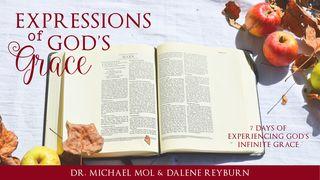
7 Days of Experiencing God’s Infinite Grace

Wisdom for Right Living
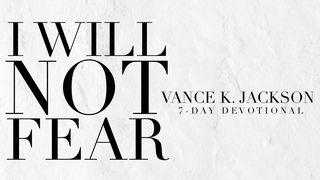
I Will Not Fear
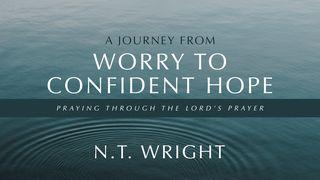
A Journey From Worry to Confident Hope: Praying Through the Lord’s Prayer

Getting To Know The Real You
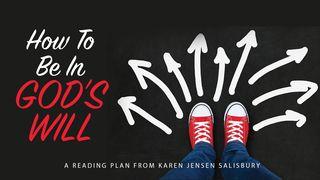
How To Be In God's Will
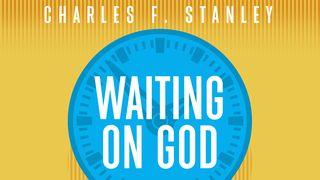
Waiting on God

You’ve Heard It Said

Praying God's Truth Over My Fears
